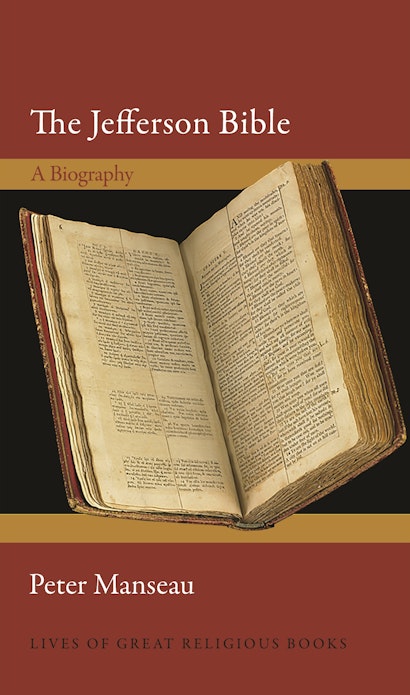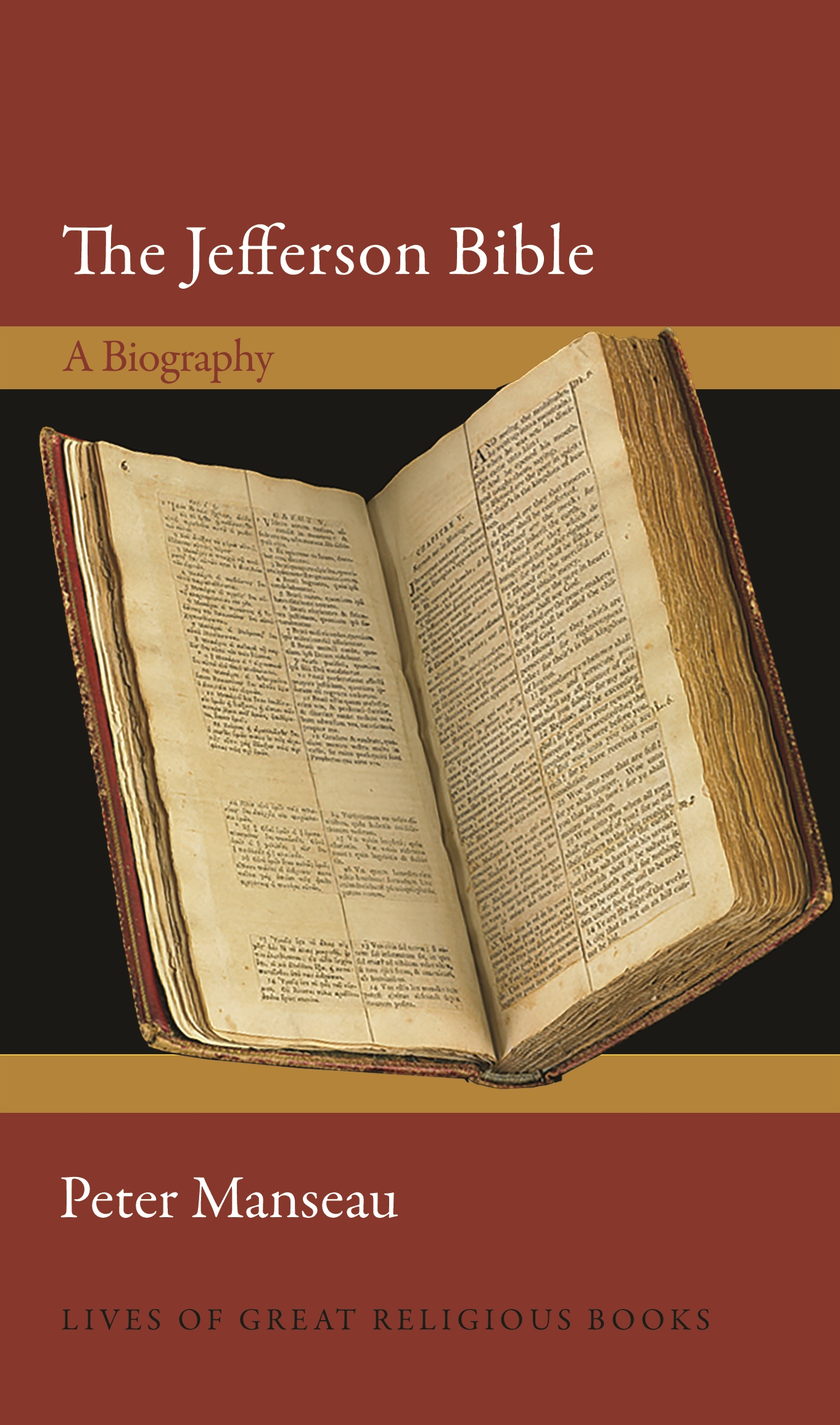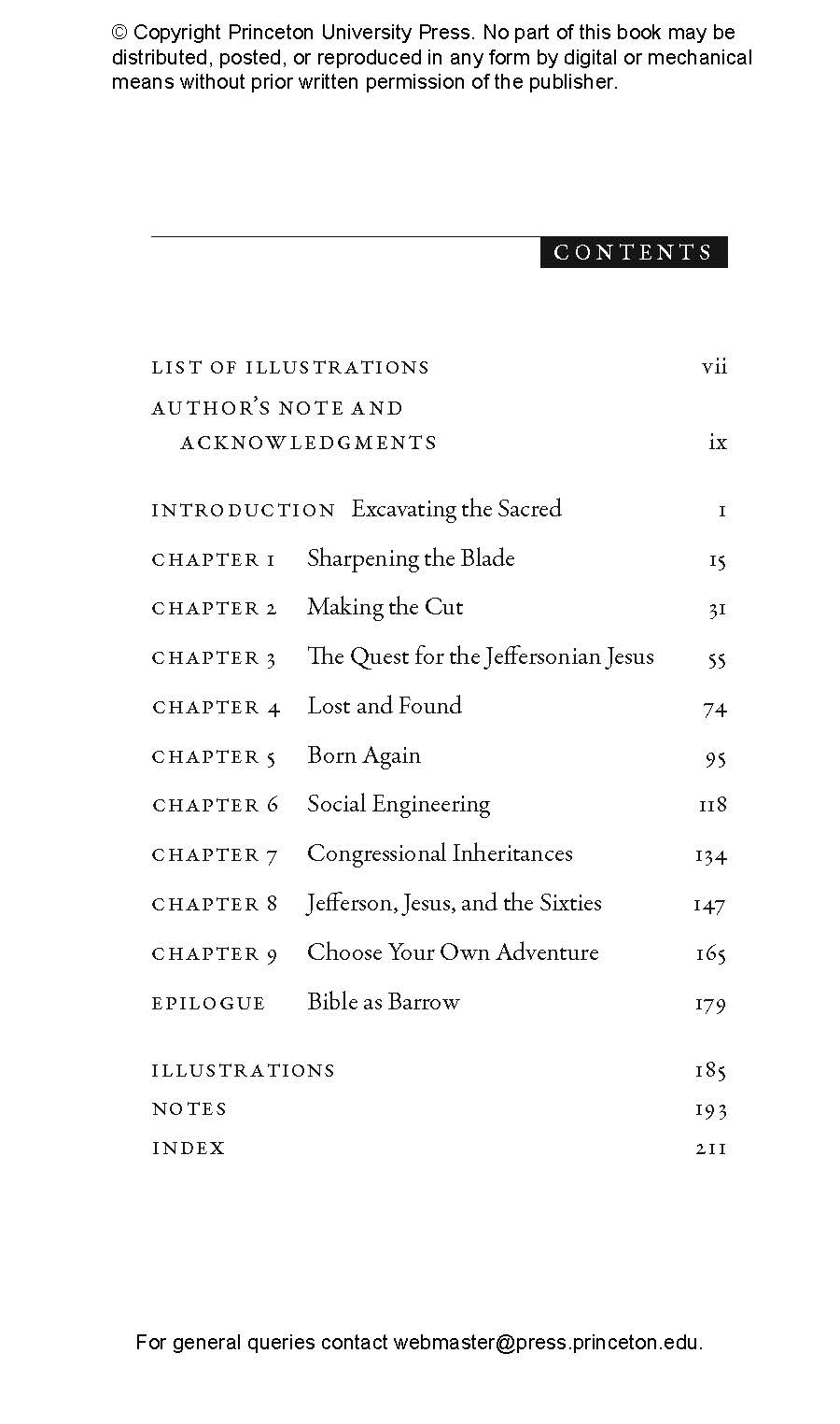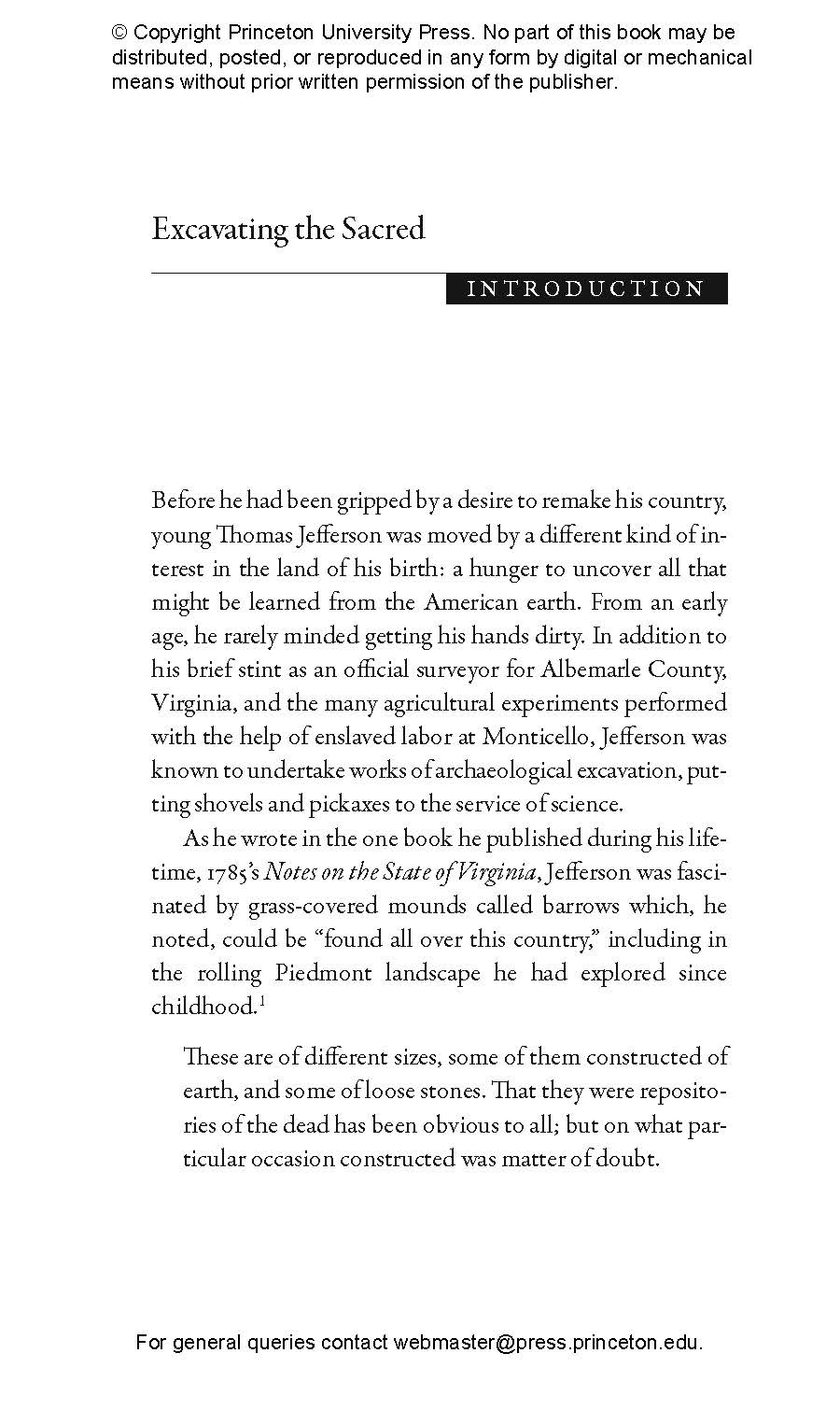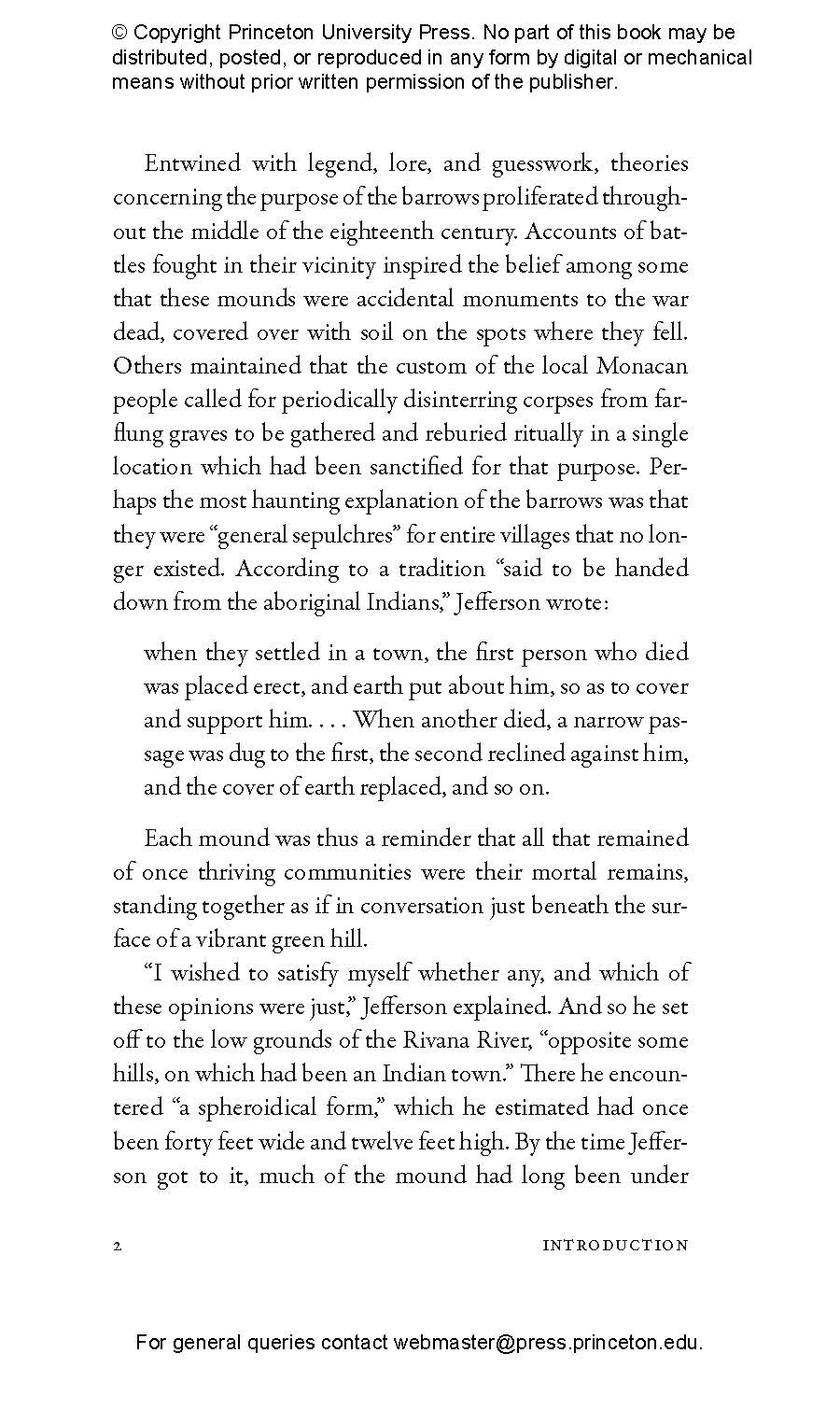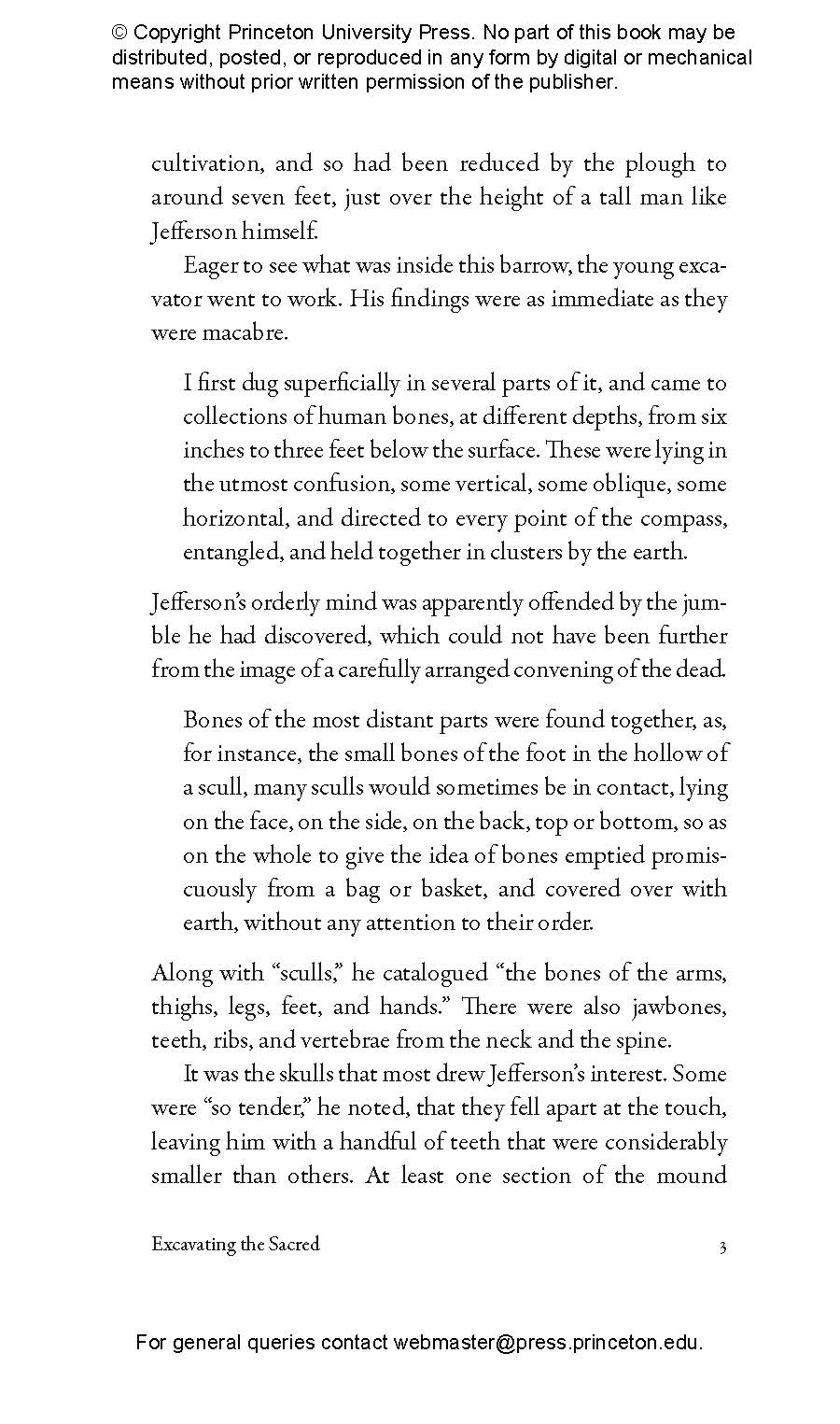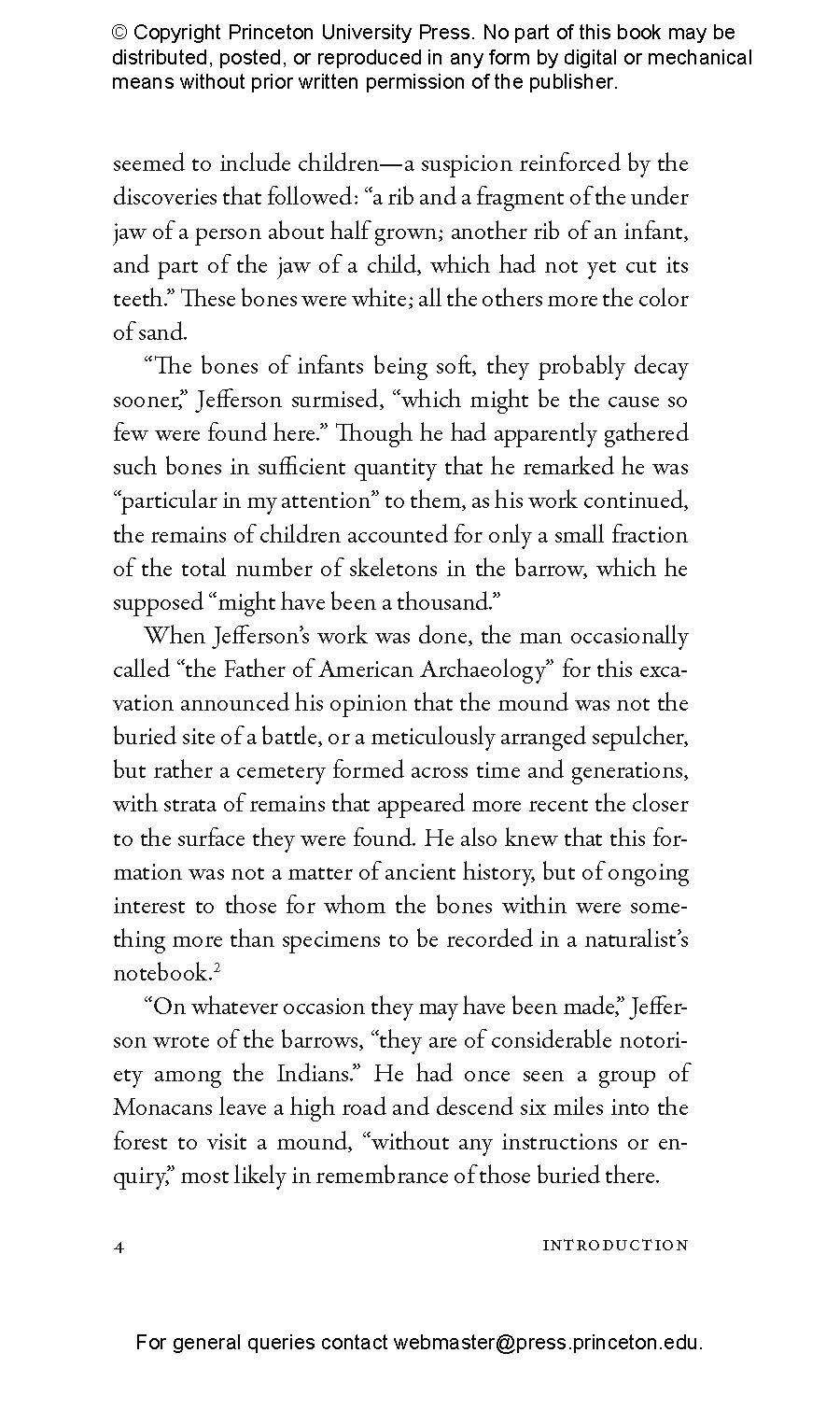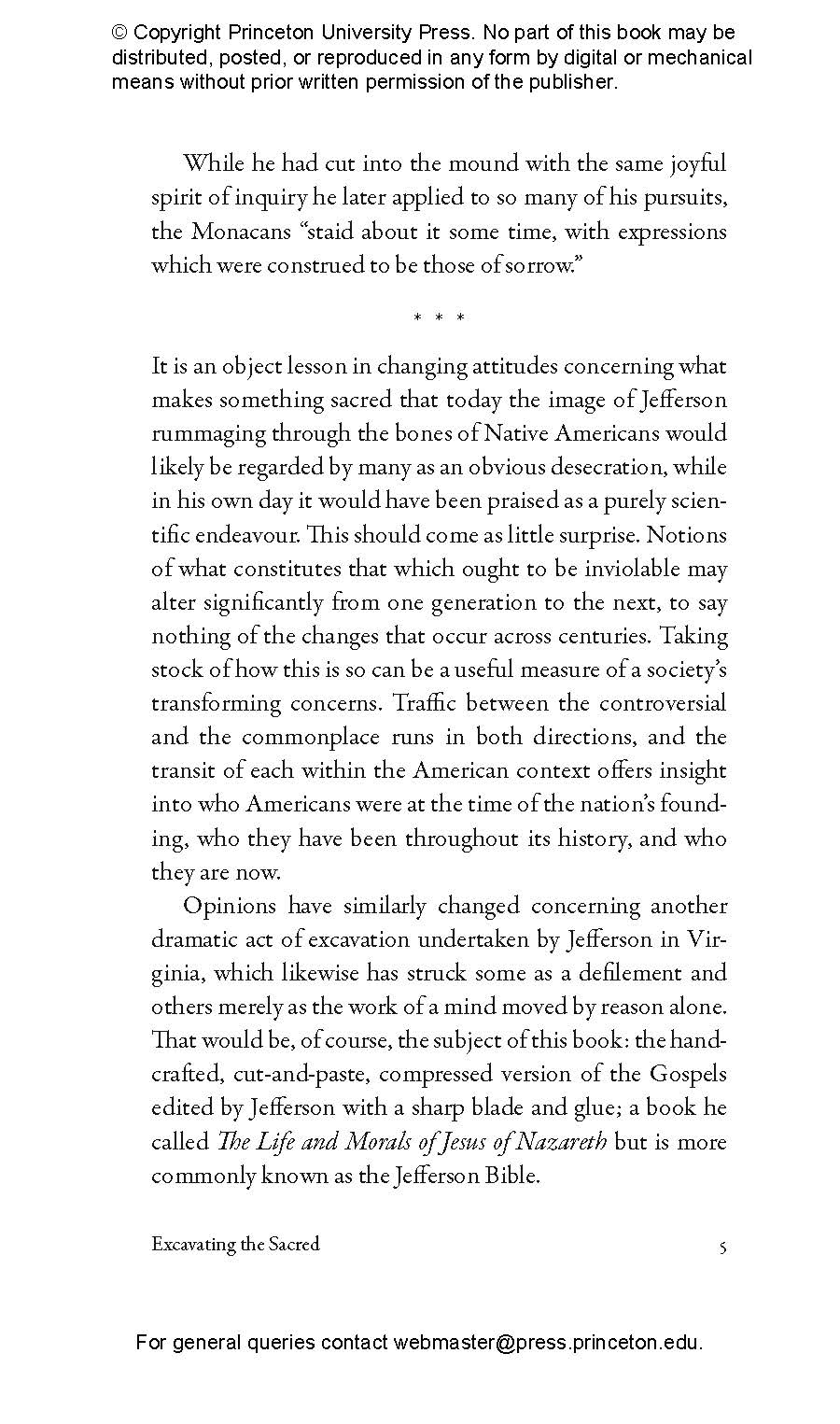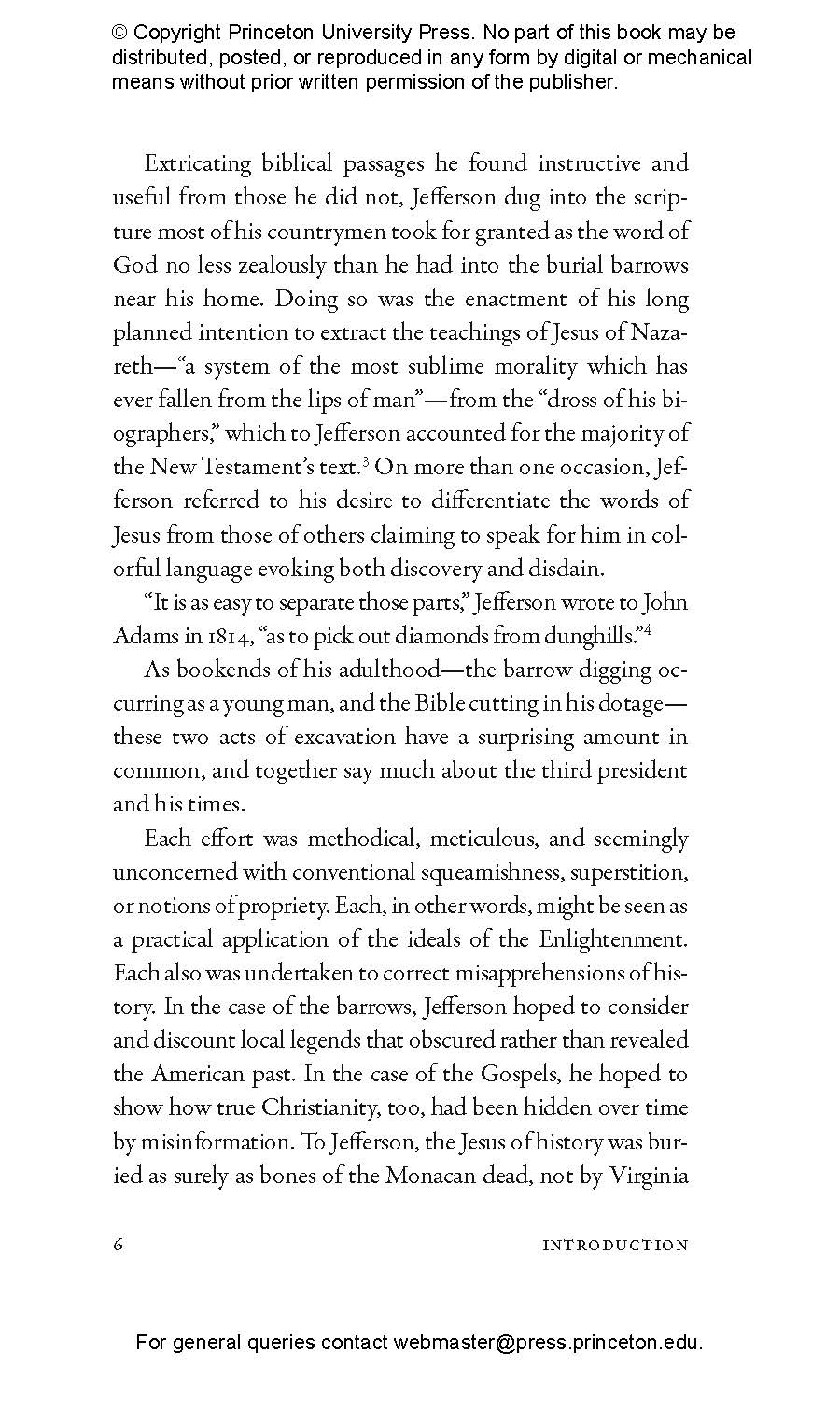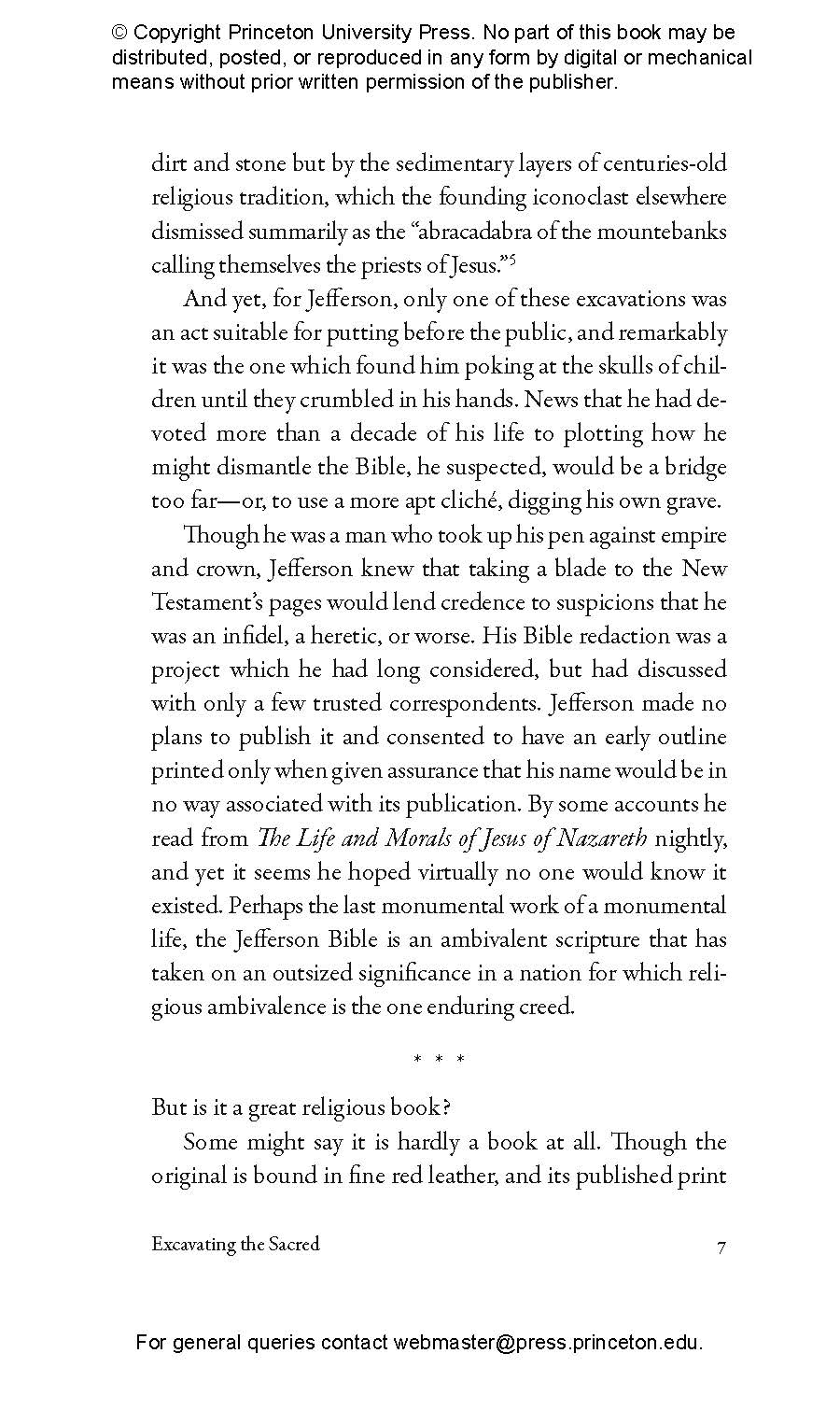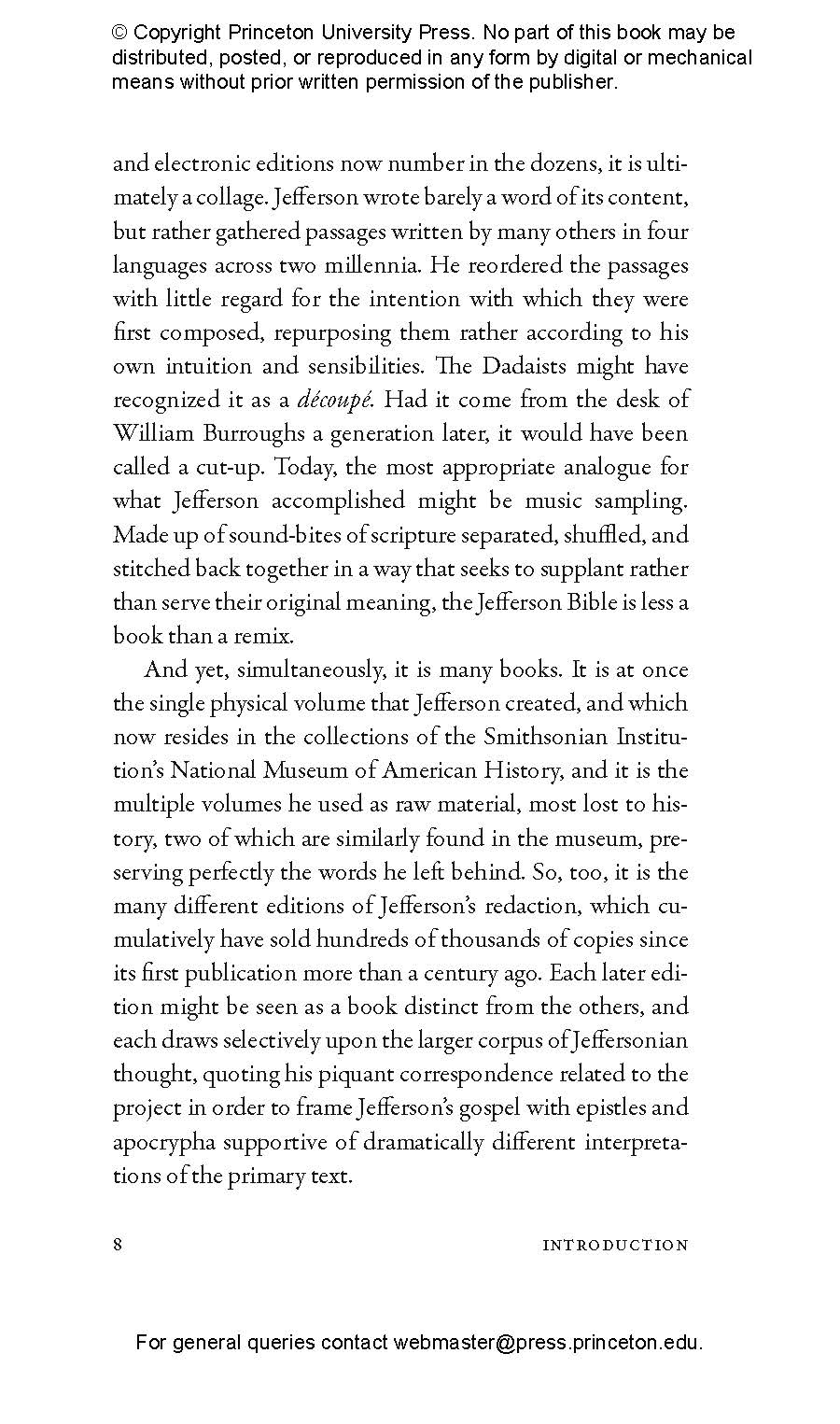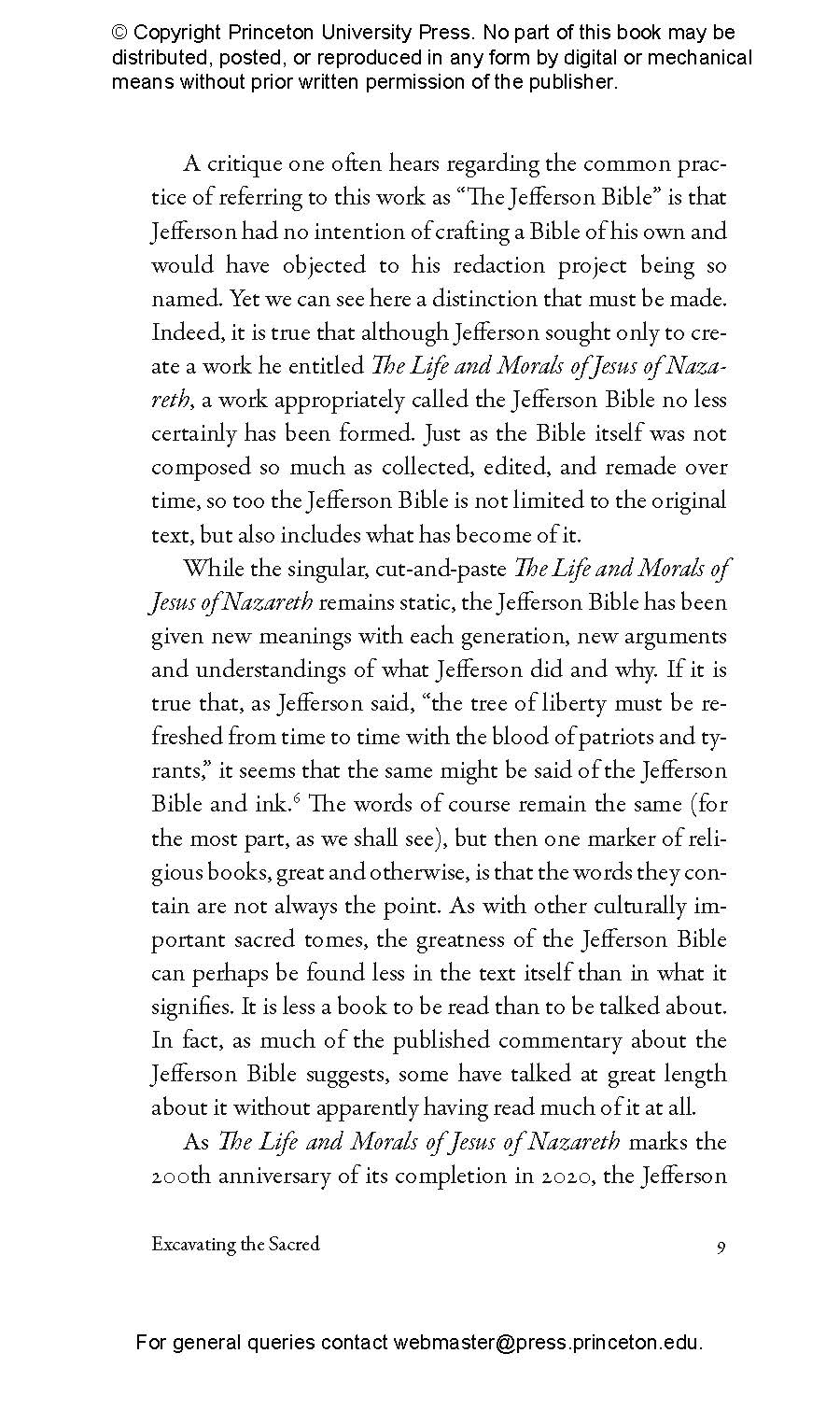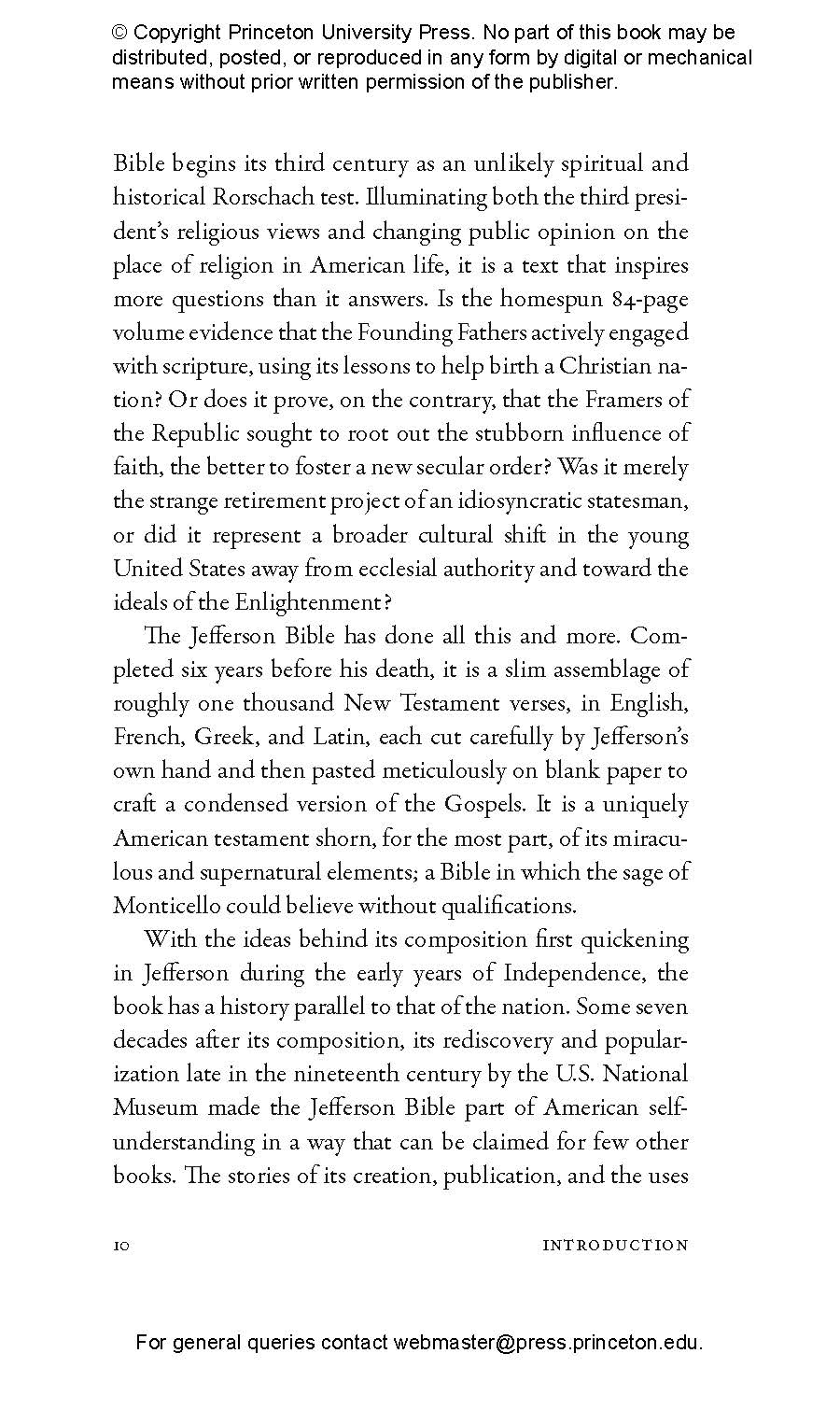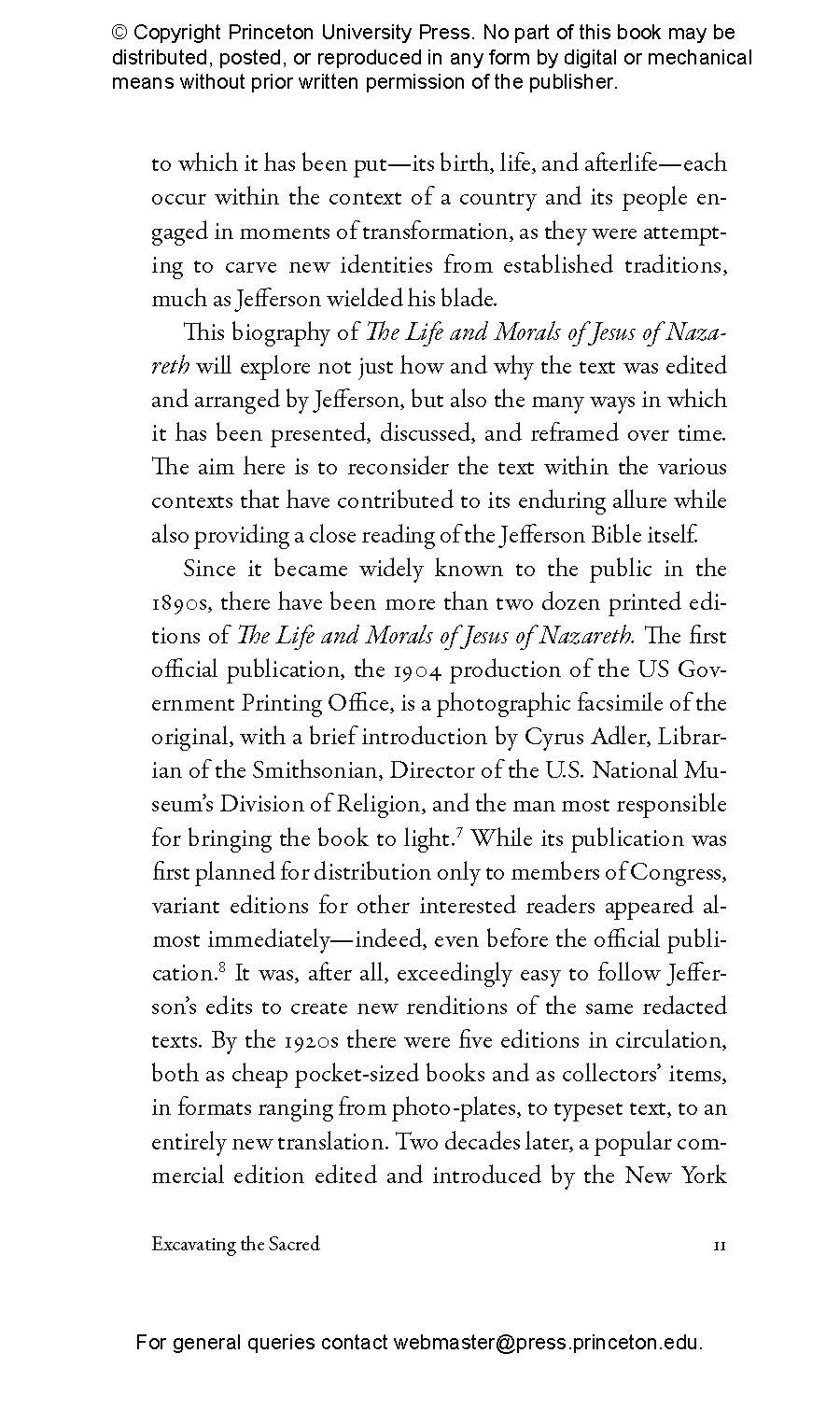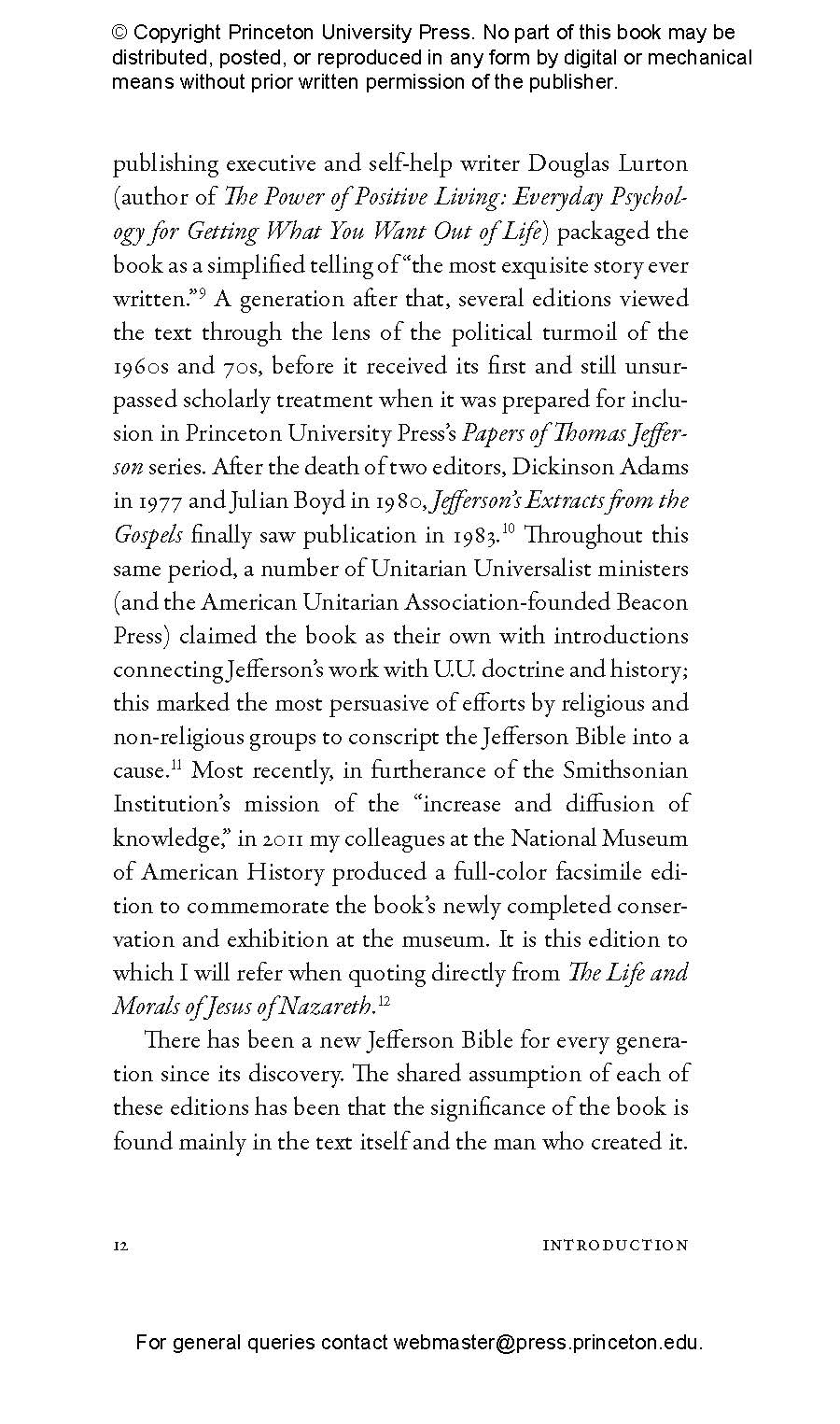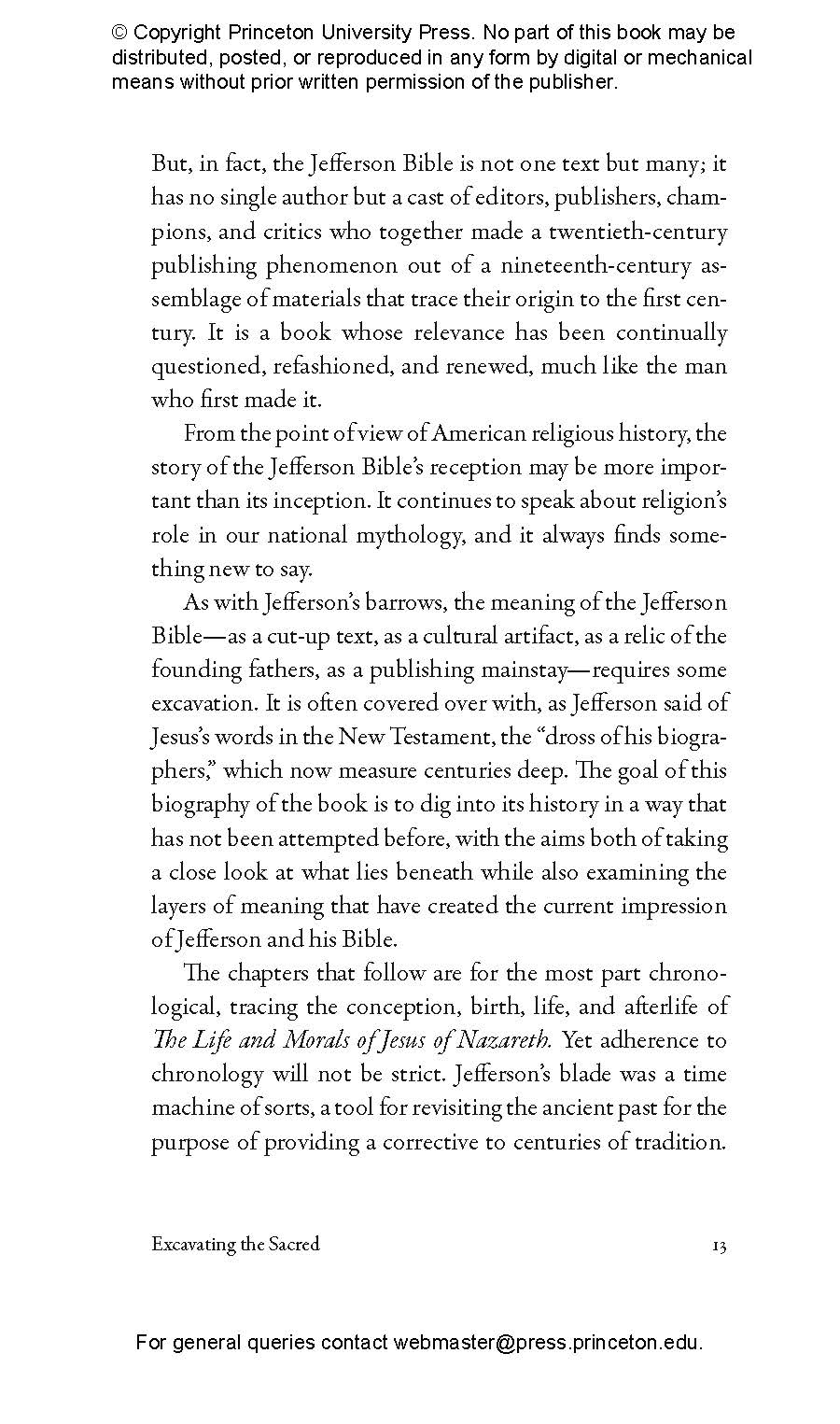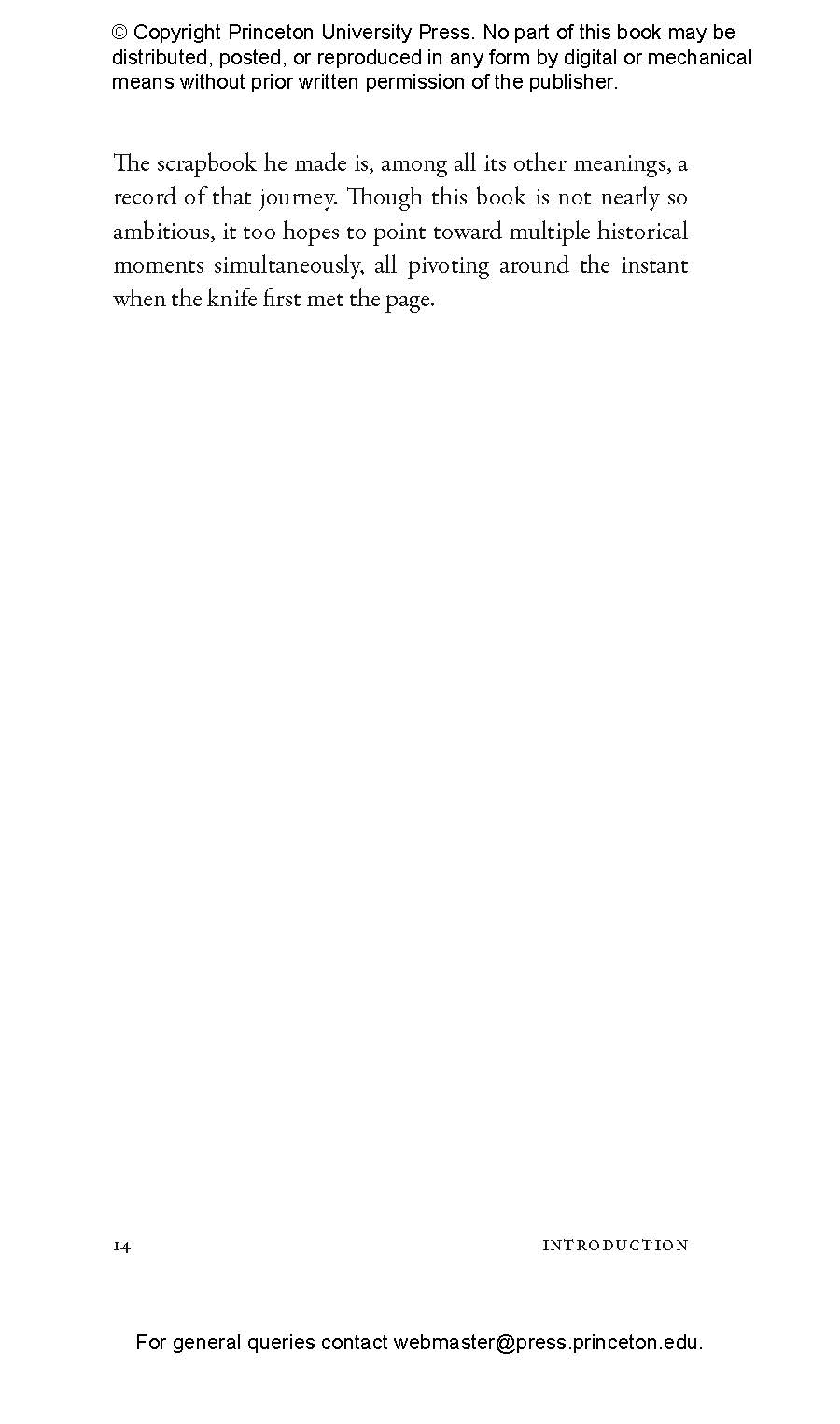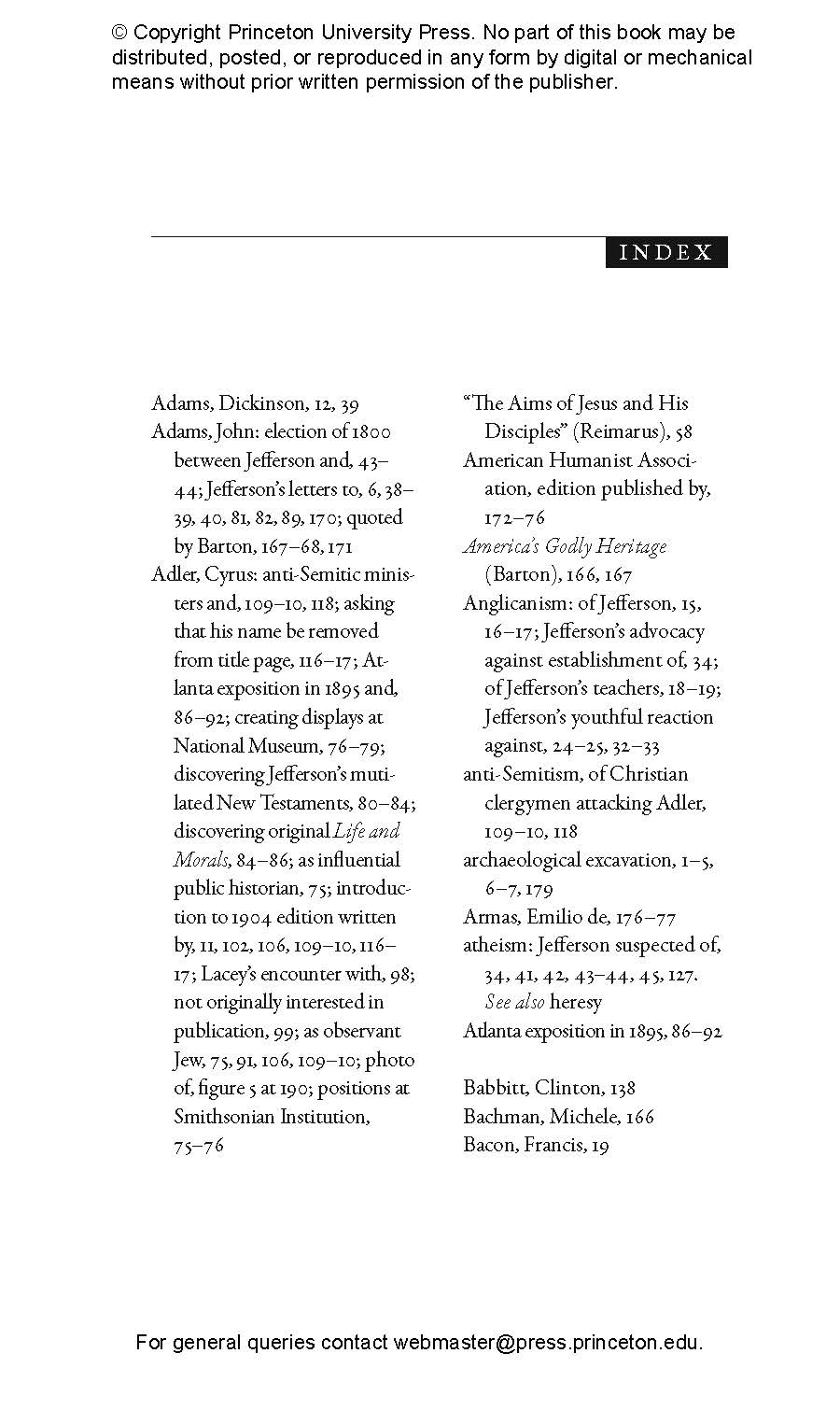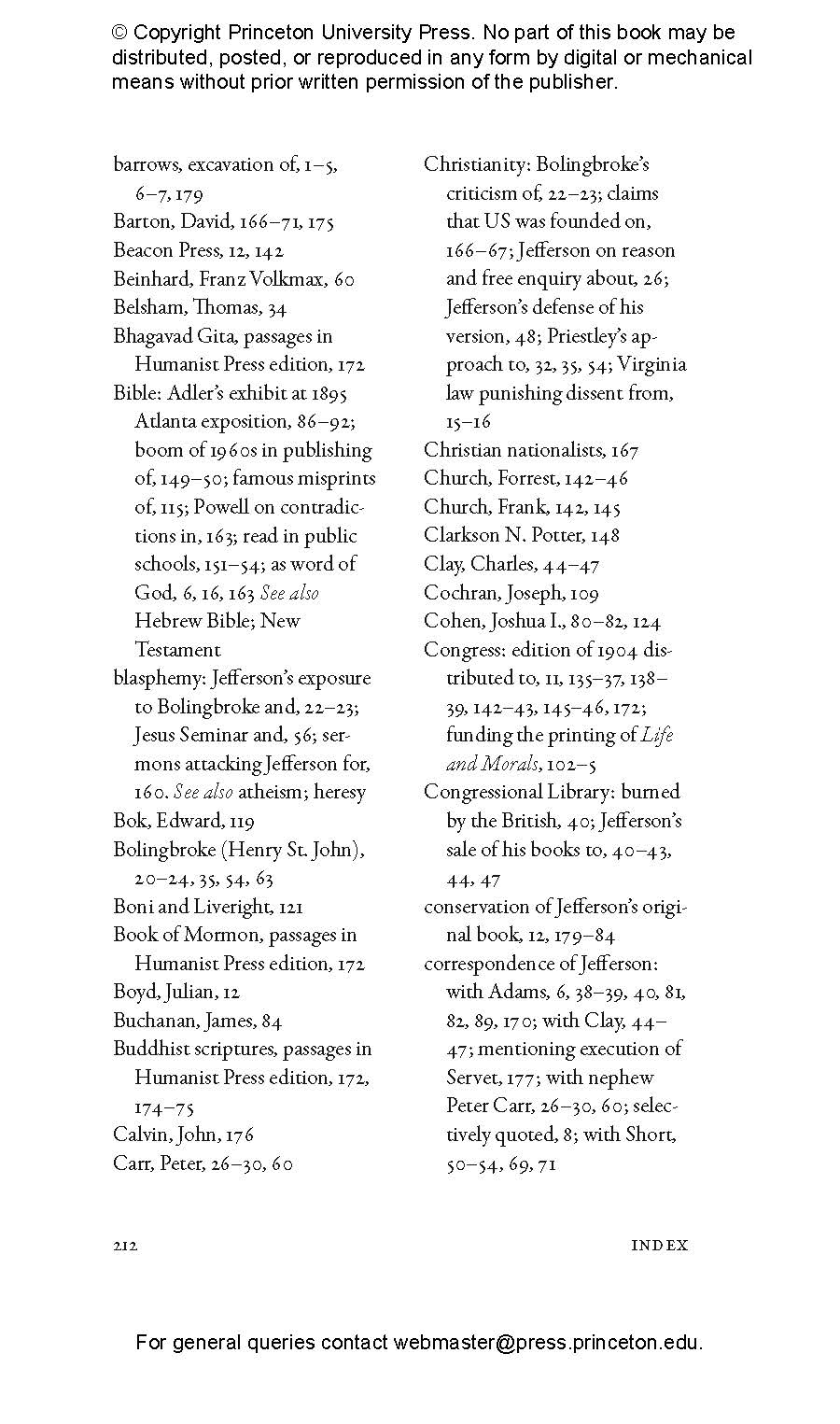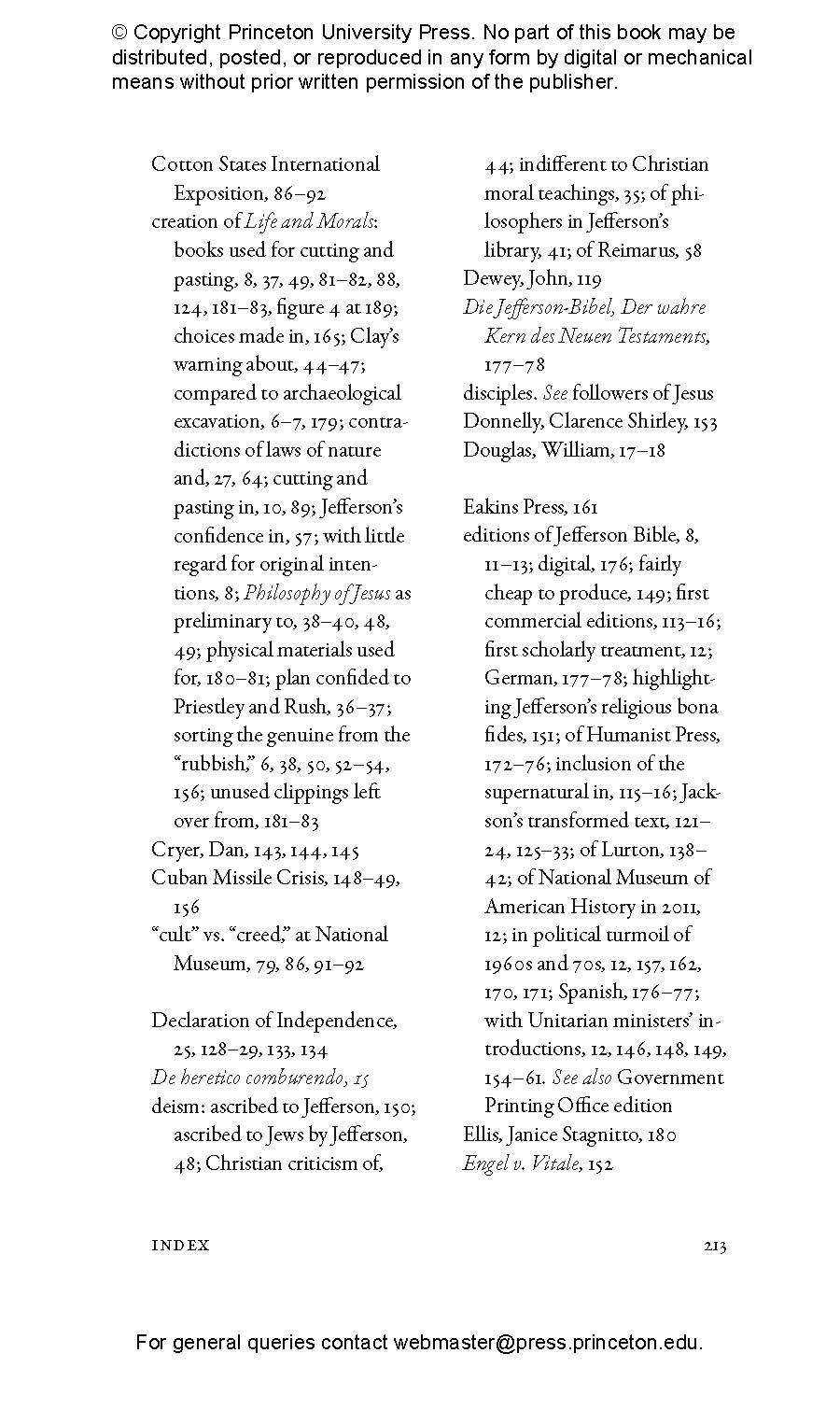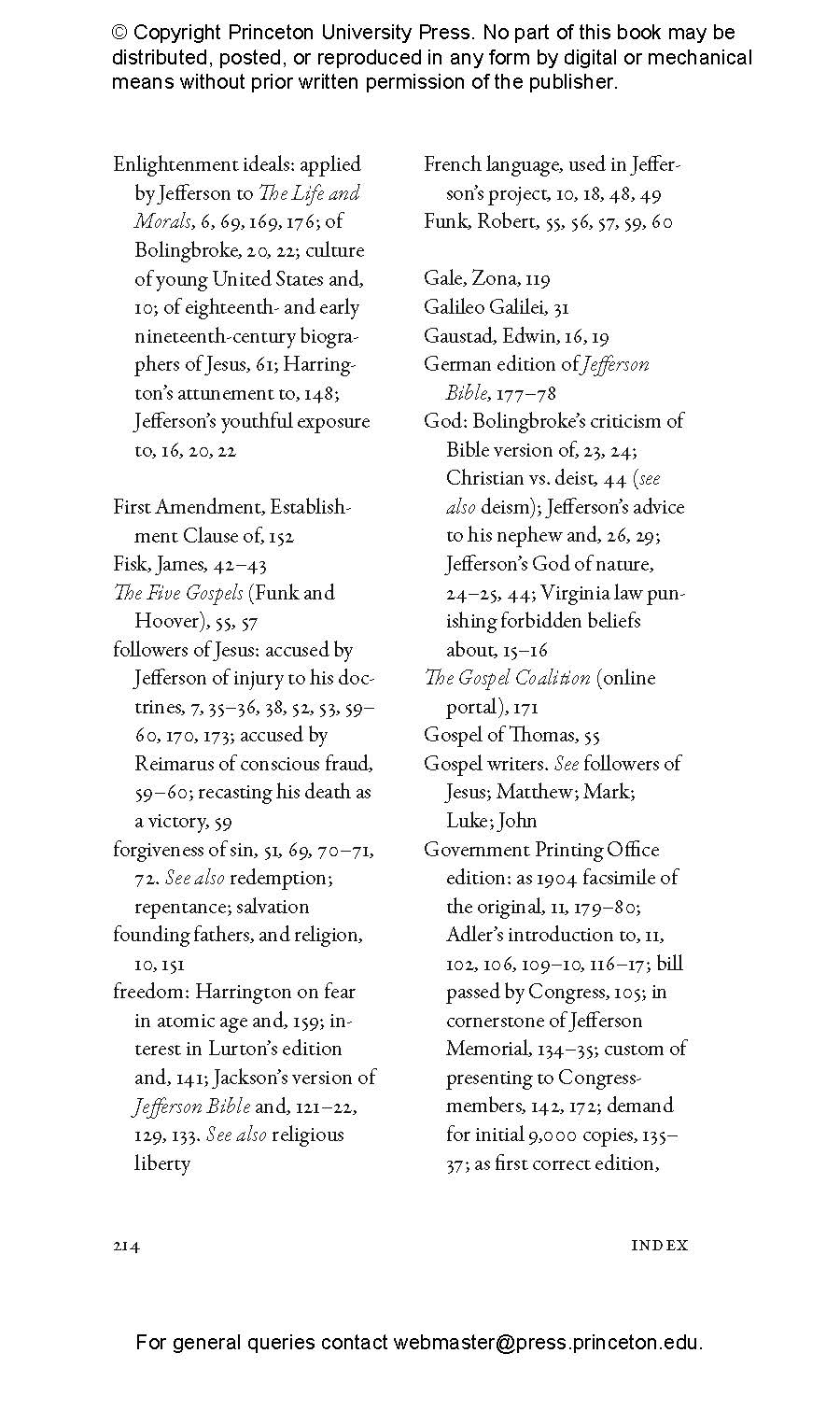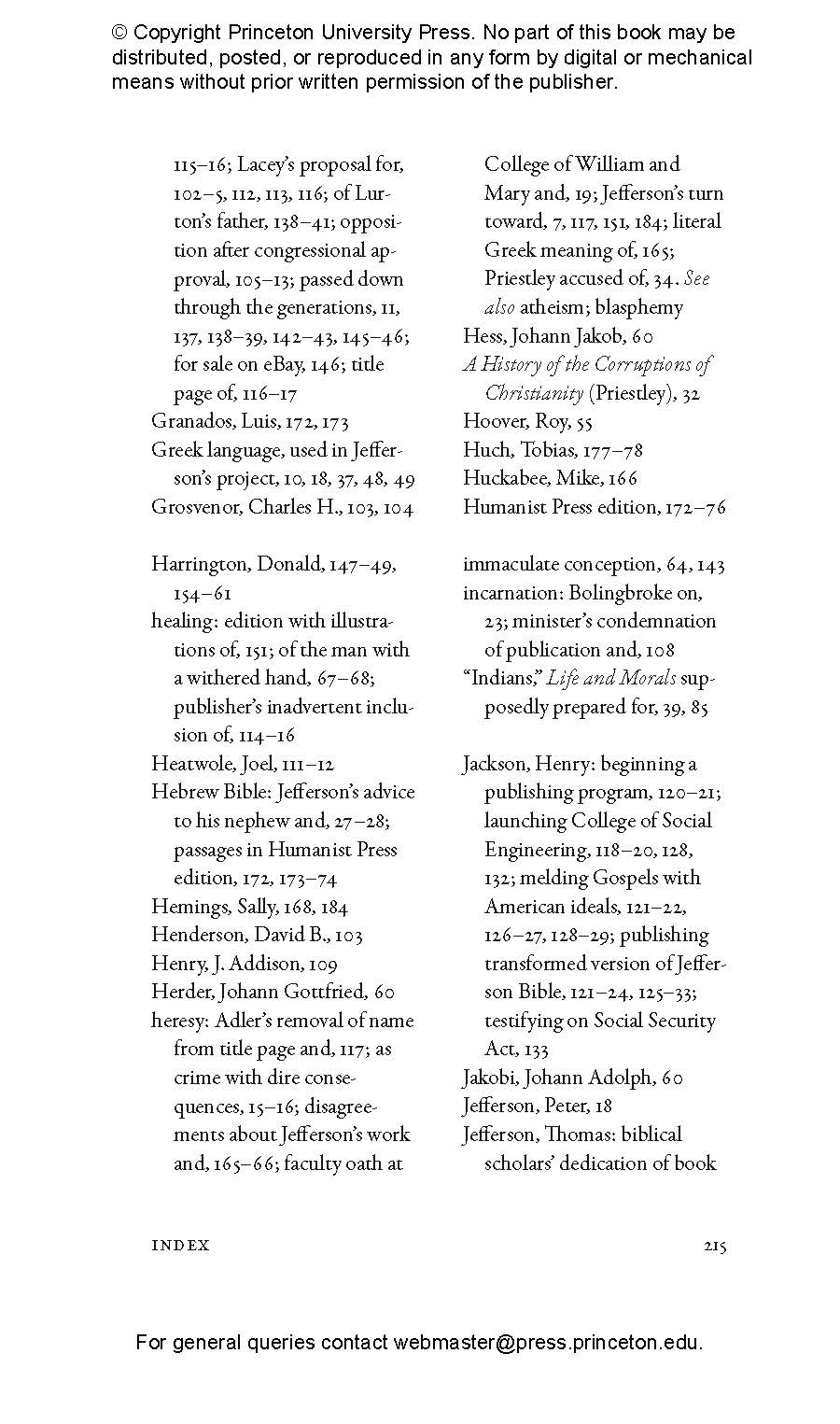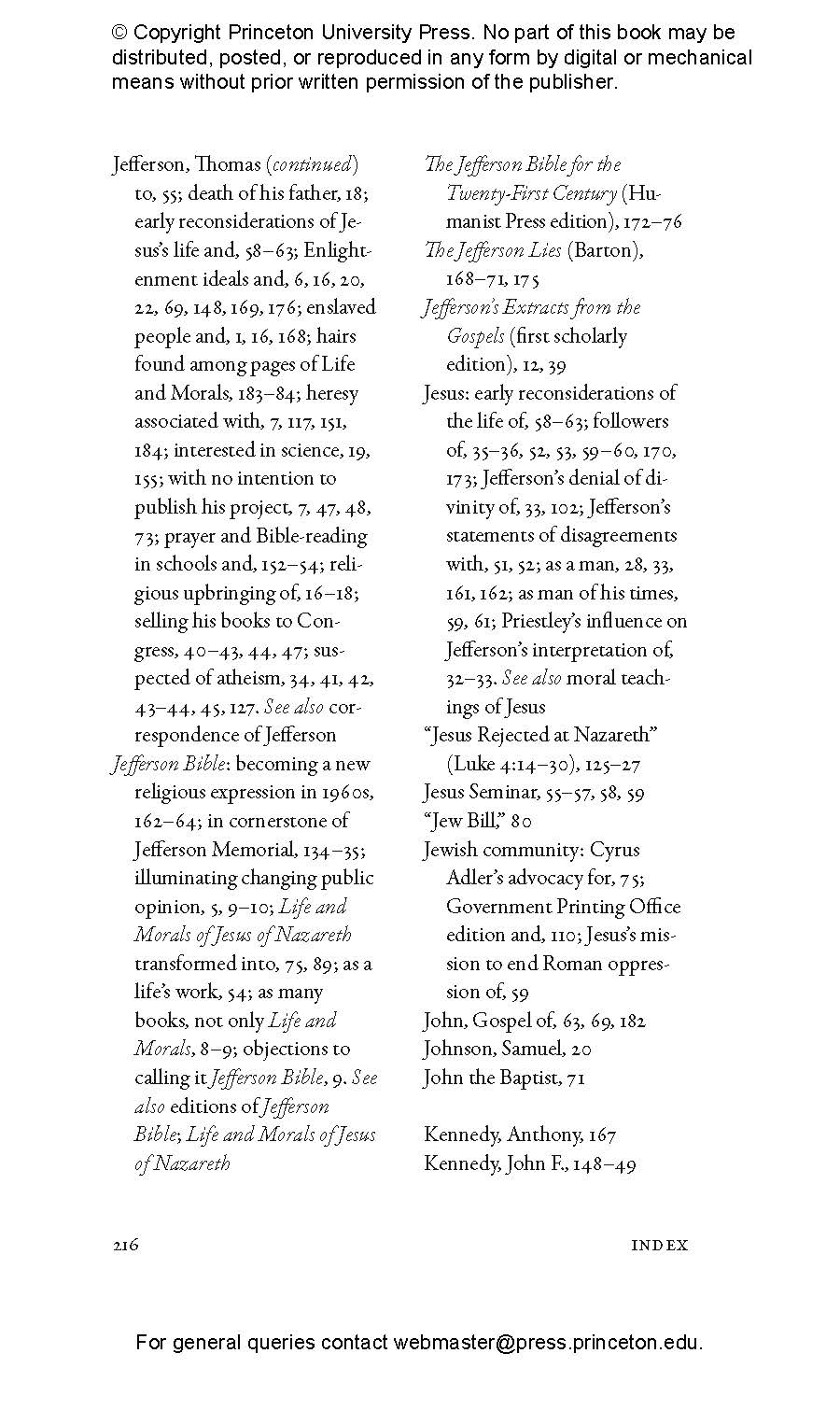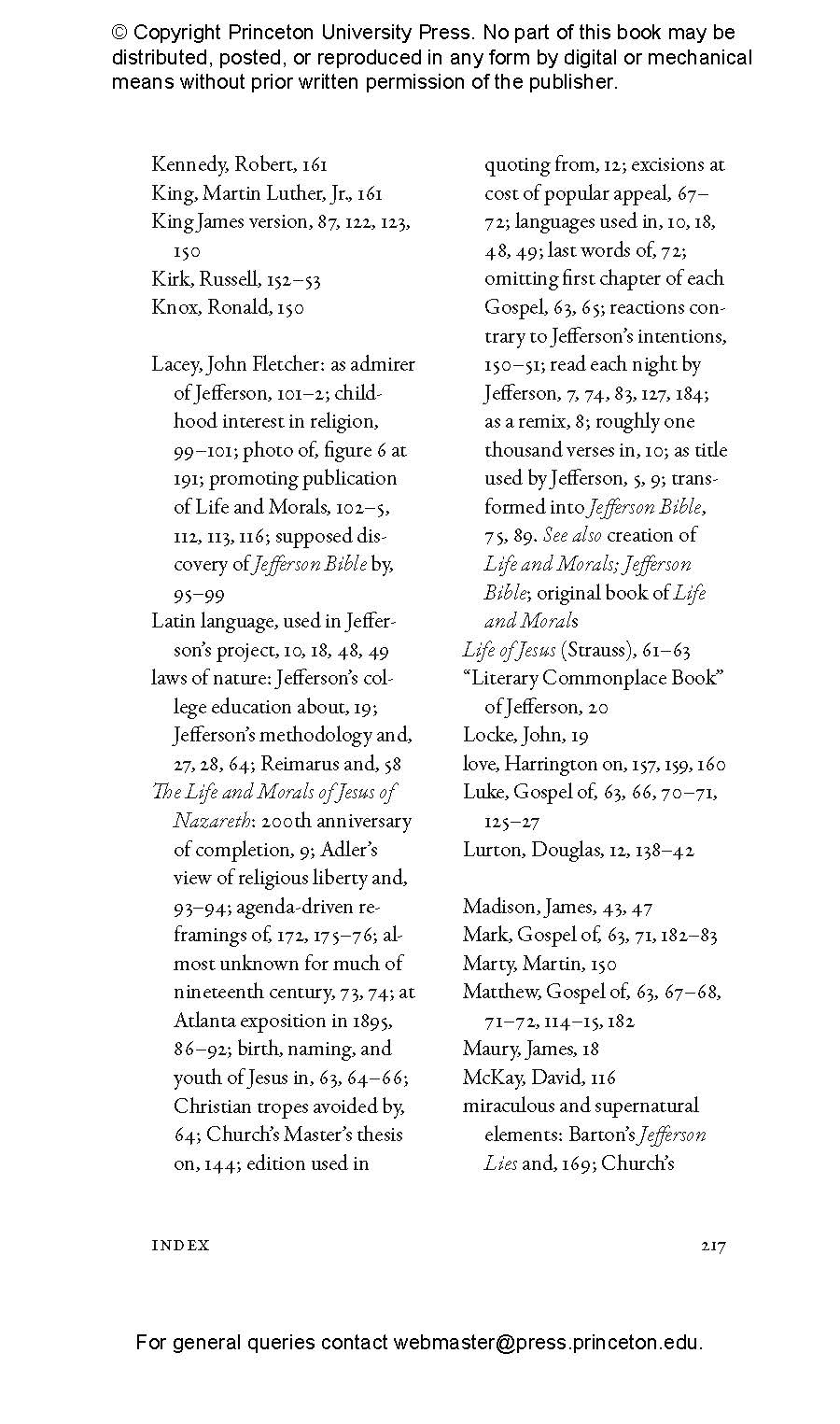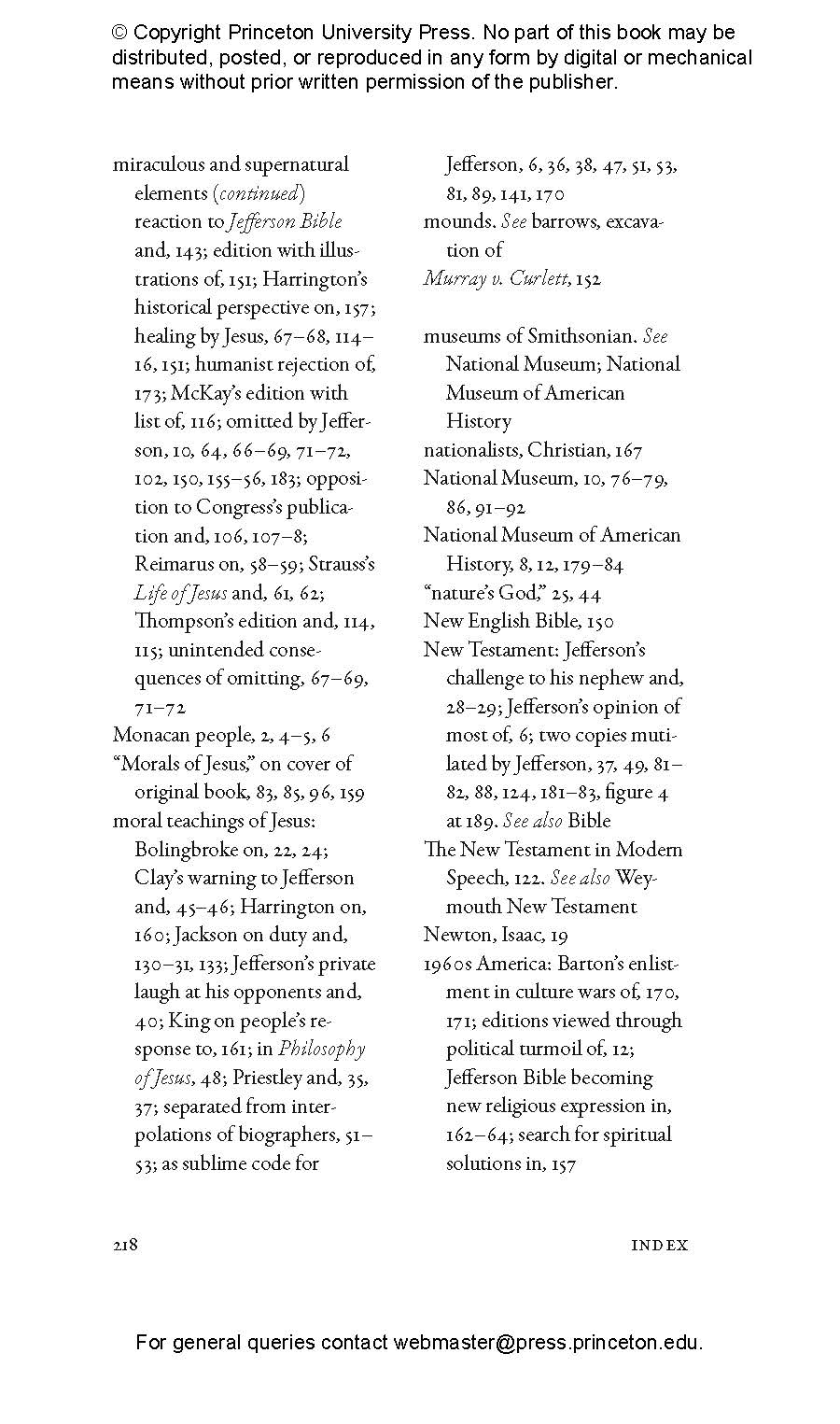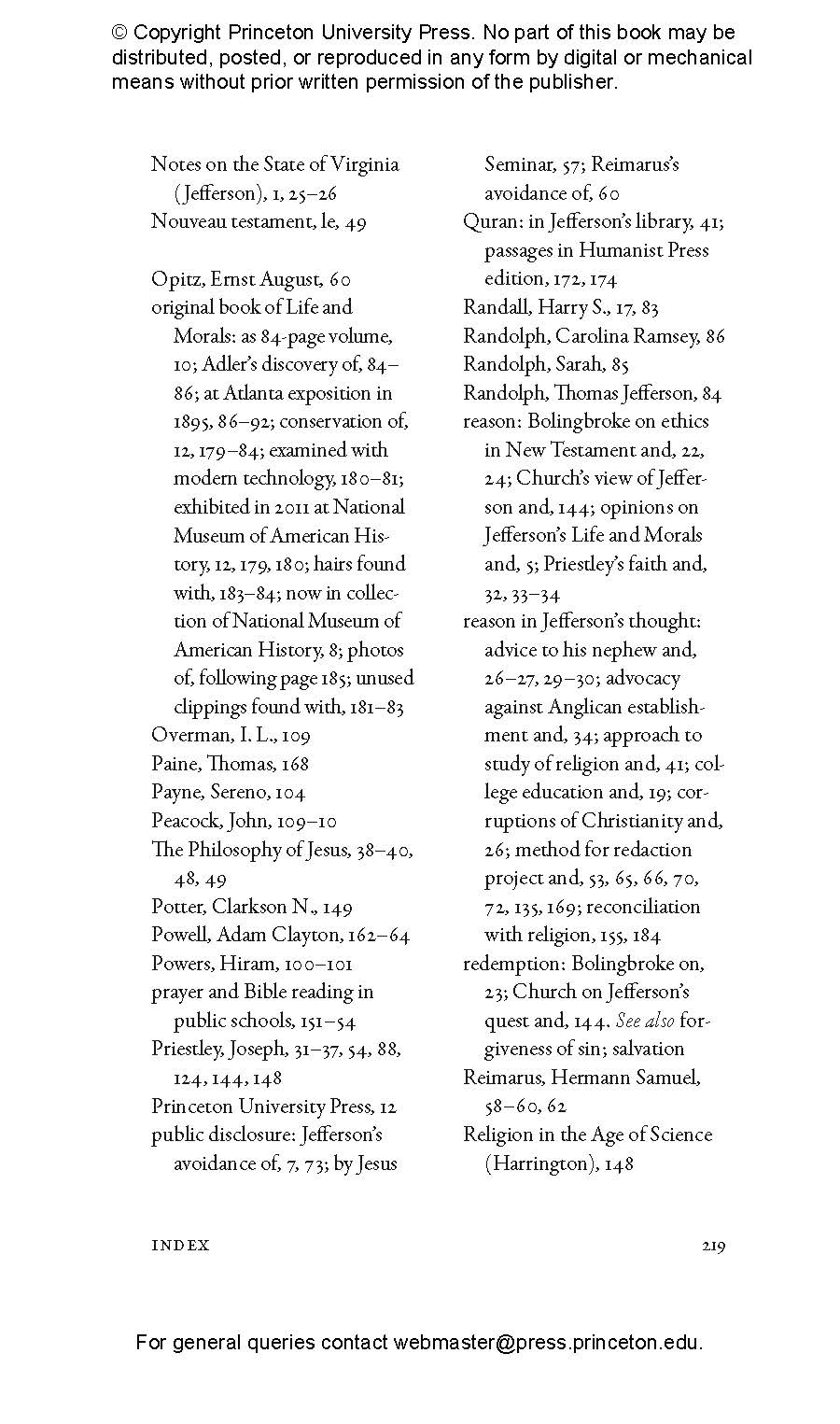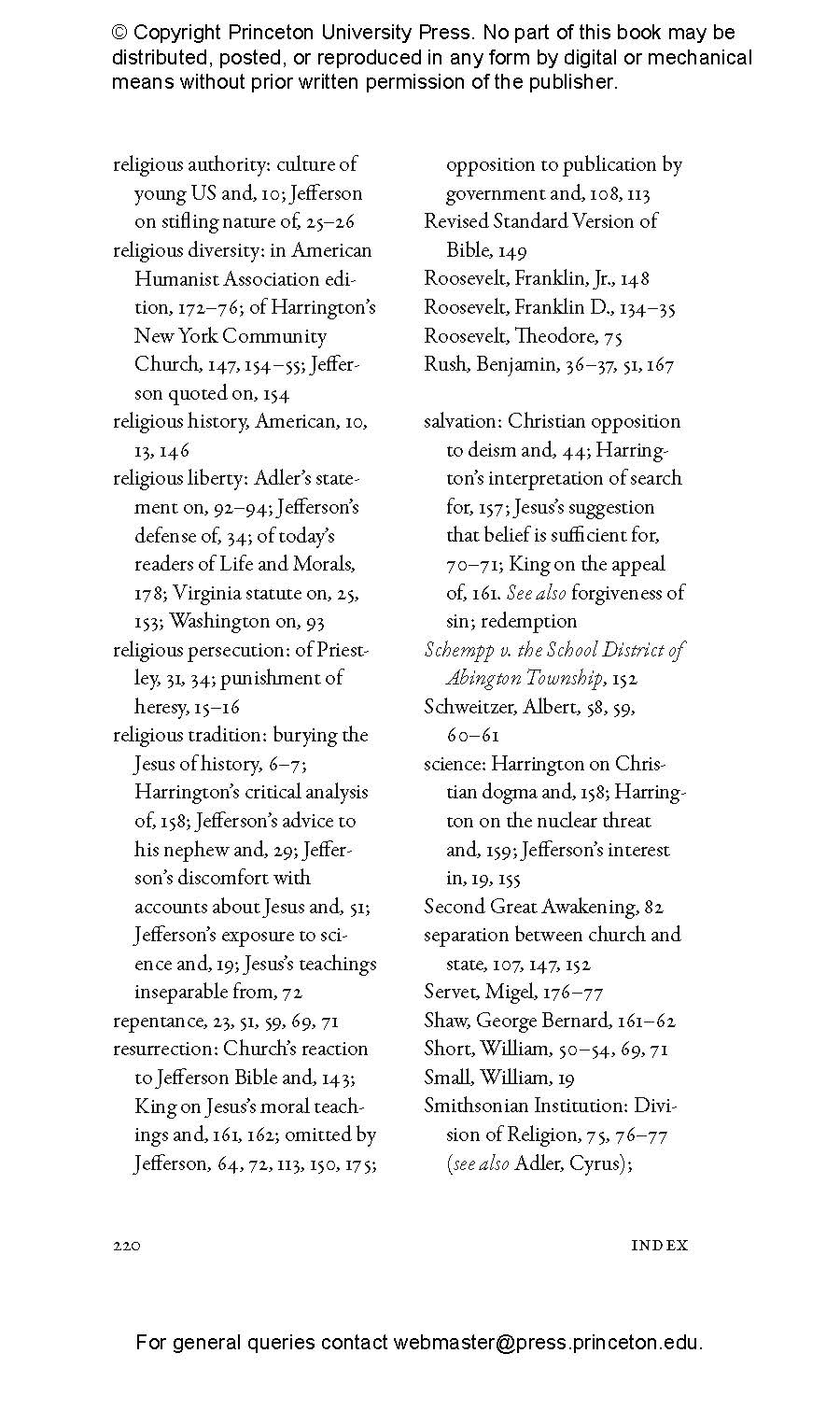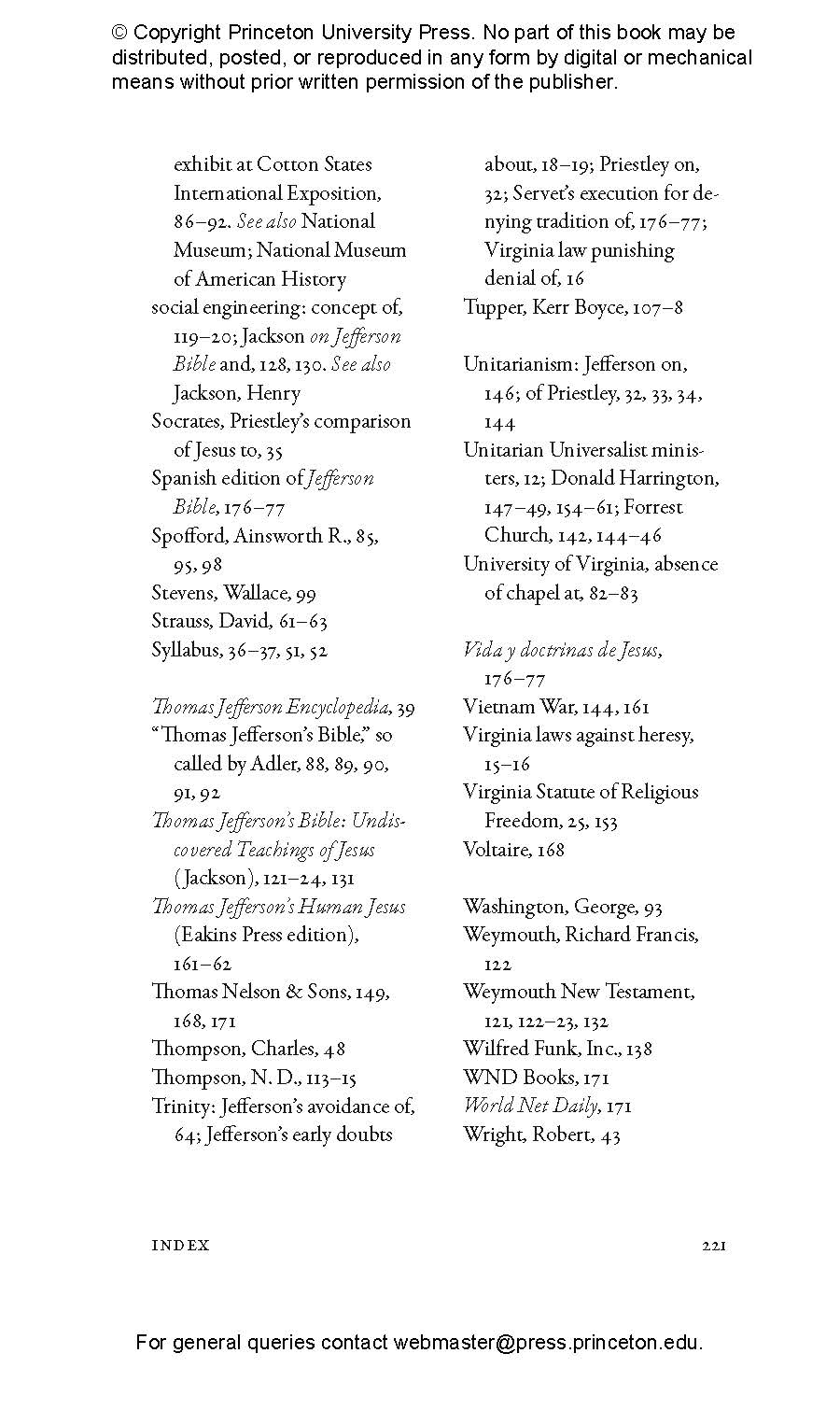In his retirement, Thomas Jefferson edited the New Testament with a penknife and glue, removing all mention of miracles and other supernatural events. Inspired by the ideals of the Enlightenment, Jefferson hoped to reconcile Christian tradition with reason by presenting Jesus of Nazareth as a great moral teacher—not a divine one. Peter Manseau tells the story of the Jefferson Bible, exploring how each new generation has reimagined the book in its own image as readers grapple with both the legacy of the man who made it and the place of religion in American life.
Completed in 1820 and rediscovered by chance in the late nineteenth century after being lost for decades, Jefferson’s cut-and-paste scripture has meant different things to different people. Some have held it up as evidence that America is a Christian nation founded on the lessons of the Gospels. Others see it as proof of the Founders’ intent to root out the stubborn influence of faith. Manseau explains Jefferson’s personal religion and philosophy, shedding light on the influences and ideas that inspired him to radically revise the Gospels. He situates the creation of the Jefferson Bible within the broader search for the historical Jesus, and examines the book’s role in American religious disputes over the interpretation of scripture. Manseau describes the intrigue surrounding the loss and rediscovery of the Jefferson Bible, and traces its remarkable reception history from its first planned printing in 1904 for members of Congress to its persistent power to provoke and enlighten us today.
"Peter Manseau’s fluent and instructive The Jefferson Bible: A Biography . . . carefully traces Jefferson’s pilgrimage into the non-miraculous."—James Parker, The Atlantic
"Peter Manseau knows the Jefferson Bible well. . . . His outstanding biography of the text . . . pays careful attention to its status as private project, published book and political symbol."—Crawford Gribben, Wall Street Journal
"Manseau’s story [recounts] a thrilling mixture of accident, fine timing, and diligent public-museum curation."—Vinson Cunningham, New Yorker
"[A] fine ‘biography,’ the latest in av������’s excellent series on the Lives of Great Religious Books. "—Nick Spencer, Prospect
"Manseau's biography is scholarly and witty. It is an excellent introduction to an underappreciated aspect of Jefferson's thinking."—Daniel Rey, History Today
"Excellent. . . . As Manseau observes, the ways in which Americans have received the Jefferson Bible may be more interesting than the ways by which Jefferson conceived it."—John Miller, Angelus
"An illuminating look at a work of one of our most intellectually inquisitive presidents that will appeal to Jefferson aficionados, as well as anyone interested in the history of American religion."—Library Journal
"[F]ascinating. ... Manseau’s accounting of the post-discovery history of Jefferson’s [Bible] is well told.
"—The Journal of Southern History
"With great erudition bolstered by deep research, Peter Manseau tells the story of the reception of one of the most audacious and controversial projects ever undertaken by one of America's founders. Manseau’s account of how generations of Americans have sought to make sense of the Jefferson Bible is much needed."—Annette Gordon-Reed, Pulitzer Prize–winning author of The Hemingses of Monticello: An American Family
"A brilliant account. The reader is in for an enlightening foray that explains Jefferson's book for what it tells us about Jefferson himself, the cultural history of interpreting scripture, and the religious and political import of how Americans have viewed Jesus."—Sylvester A. Johnson, author of African American Religions, 1500–2000: Colonialism, Democracy, and Freedom
"A page-turner for thoughtful readers. Manseau offers a compelling window onto Jefferson's intellectual processes and a unique perspective on the larger history of religion in America, especially as it relates to American cultural divides concerning efforts to sort out the Jesus of history from the Christ of faith."—Timothy Beal, author of The Rise and Fall of the Bible: The Unexpected History of an Accidental Book
